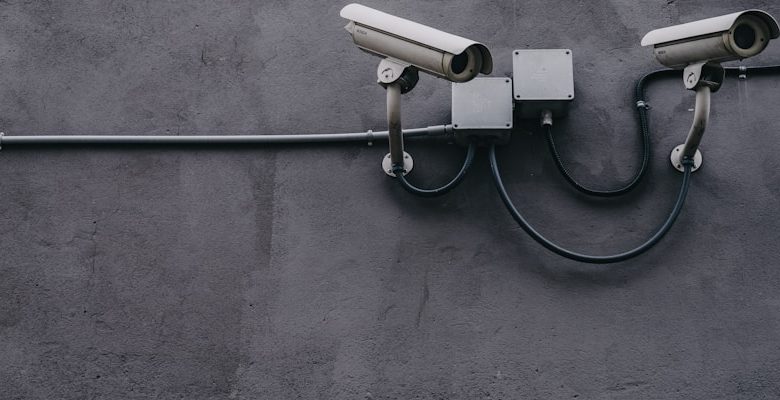Blockchain in Healthcare: Improving Data Security and Access

- Understanding the Role of Blockchain in Healthcare
- Enhancing Data Security in the Healthcare Industry
- Benefits of Implementing Blockchain Technology in Healthcare
- Challenges and Solutions in Using Blockchain for Data Access
- The Future of Healthcare Data Management with Blockchain
- Case Studies: Successful Integration of Blockchain in Healthcare
Understanding the Role of Blockchain in Healthcare
Blockchain technology is revolutionizing the healthcare industry by improving data security and access. The role of blockchain in healthcare is to provide a secure and decentralized way of storing and sharing sensitive patient information. By using encryption and distributed ledger technology, blockchain ensures that data is tamper-proof and can only be accessed by authorized parties. This helps to protect patient privacy and prevent data breaches.
Blockchain also streamlines access to medical records by allowing healthcare providers to access a patient’s complete medical history quickly and securely. This can lead to more efficient and coordinated care, as providers have access to up-to-date information about a patient’s health status. Furthermore, blockchain can improve interoperability between different healthcare systems, allowing for seamless sharing of data across organizations.
In addition to data security and access, blockchain technology can also be used to track the provenance of pharmaceuticals and medical devices. By recording every transaction on the blockchain, it is possible to trace the entire supply chain of a product and verify its authenticity. This can help to prevent counterfeit drugs from entering the market and ensure that patients are receiving safe and effective treatments.
Overall, blockchain has the potential to transform the healthcare industry by enhancing data security, improving access to medical records, and ensuring the authenticity of pharmaceuticals. As more healthcare organizations adopt blockchain technology, patients can expect to see better protection of their sensitive information and more personalized care.
Enhancing Data Security in the Healthcare Industry
Enhancing data security in the healthcare industry is a top priority due to the sensitive nature of patient information. Blockchain technology offers a secure way to store and access data, reducing the risk of unauthorized access and data breaches.
By utilizing blockchain in healthcare, organizations can ensure that patient data is encrypted and distributed across a decentralized network. This means that even if one part of the network is compromised, the rest of the data remains secure. Additionally, blockchain technology allows for greater transparency and traceability of data access, helping to maintain the integrity of patient records.
Implementing blockchain in healthcare can also streamline the process of sharing data between healthcare providers, insurers, and patients. With blockchain, data can be accessed in real-time, ensuring that healthcare professionals have the most up-to-date information when making treatment decisions. This can lead to improved patient outcomes and a more efficient healthcare system overall.
Benefits of Implementing Blockchain Technology in Healthcare
Implementing blockchain technology in healthcare offers a myriad of benefits that can greatly improve data security and access within the industry. By utilizing blockchain, healthcare organizations can enhance the security and privacy of patient data, streamline data sharing between different providers, and improve overall data integrity.
One of the key benefits of blockchain technology in healthcare is its ability to provide a secure and tamper-proof way to store and share sensitive patient information. The decentralized nature of blockchain ensures that data is encrypted and stored across a network of computers, making it extremely difficult for hackers to access or alter the information. This increased security can help prevent data breaches and protect patient confidentiality.
Additionally, blockchain technology can help streamline data sharing between different healthcare providers. With blockchain, patient records can be securely shared between providers in real-time, allowing for more efficient and coordinated care. This can help reduce errors in diagnosis and treatment, ultimately leading to better patient outcomes.
Furthermore, blockchain technology can improve data integrity by providing a transparent and auditable record of all transactions. Every time a new piece of data is added to the blockchain, it is encrypted and linked to the previous data, creating a secure and unchangeable record. This can help ensure the accuracy and reliability of patient information, leading to better-informed decision-making by healthcare providers.
In conclusion, implementing blockchain technology in healthcare has the potential to revolutionize the industry by improving data security, streamlining data sharing, and enhancing data integrity. By leveraging the benefits of blockchain, healthcare organizations can better protect patient information, improve the quality of care, and ultimately save lives.
Challenges and Solutions in Using Blockchain for Data Access
One of the main challenges in using blockchain for data access in healthcare is the complexity of integrating this technology into existing systems. The interoperability of blockchain with legacy systems can be a significant hurdle. However, there are solutions to this issue, such as using middleware to facilitate communication between blockchain networks and traditional databases.
Another challenge is the scalability of blockchain networks, especially when it comes to handling a large volume of healthcare data. To address this, developers are working on implementing sharding techniques and off-chain solutions to improve the throughput of blockchain networks. These solutions aim to enhance the performance of blockchain systems in healthcare settings.
Security and privacy concerns are also critical when using blockchain for data access in healthcare. Ensuring compliance with regulations like HIPAA is essential to protect patient information. Encryption techniques and access control mechanisms can be employed to safeguard data on the blockchain. Additionally, implementing smart contracts can help automate compliance processes and enhance security measures.
Moreover, the cost of implementing blockchain technology in healthcare can be prohibitive for some organizations. To mitigate this challenge, collaborative efforts among industry stakeholders can help reduce costs through shared infrastructure and resources. Leveraging open-source blockchain platforms and cloud-based solutions can also lower the barrier to entry for healthcare providers looking to adopt this technology.
Overall, while there are challenges in using blockchain for data access in healthcare, innovative solutions are being developed to address these issues. By overcoming interoperability challenges, improving scalability, enhancing security measures, and reducing costs, blockchain technology has the potential to revolutionize data access in the healthcare industry.
The Future of Healthcare Data Management with Blockchain
The advancement of blockchain technology has the potential to revolutionize healthcare data management by enhancing security, transparency, and accessibility. Blockchain allows for the creation of a decentralized and immutable ledger that securely stores data through cryptographic techniques. This ensures that patient information is protected from unauthorized access and tampering, reducing the risk of data breaches and ensuring data integrity. Additionally, blockchain enables patients to have greater control over their own health records, granting them the ability to securely share their data with healthcare providers as needed.
By utilizing blockchain in healthcare data management, organizations can streamline data sharing processes, reduce administrative costs, and improve interoperability between different healthcare systems. This can lead to more efficient and accurate diagnoses, treatment plans, and overall patient care. Furthermore, blockchain technology can facilitate research and development in the healthcare industry by providing secure and transparent access to valuable data for studies and clinical trials.
Overall, the future of healthcare data management with blockchain looks promising, offering a more secure, transparent, and efficient way to handle sensitive patient information. As the technology continues to evolve and become more widely adopted, we can expect to see significant improvements in data security and access within the healthcare industry. By embracing blockchain, healthcare organizations can stay ahead of the curve and provide better care for their patients.
Case Studies: Successful Integration of Blockchain in Healthcare
Blockchain technology has been successfully integrated into various aspects of the healthcare industry, improving data security and access for patients and healthcare providers. Let’s look at some case studies that highlight the successful implementation of blockchain in healthcare:
1. Hospital A implemented blockchain technology to secure patient medical records and streamline access for healthcare professionals. By using a decentralized system, Hospital A was able to ensure that patient data was encrypted and protected from unauthorized access. This improved data security and allowed for efficient sharing of information among healthcare providers involved in a patient’s care.
2. Health Insurance Company B utilized blockchain to enhance the claims process and reduce fraud. By storing claims data on a secure blockchain network, Health Insurance Company B was able to verify the authenticity of claims and detect any fraudulent activities. This not only saved time and resources but also increased trust among policyholders.
3. Telemedicine Platform C integrated blockchain technology to improve the security and privacy of telehealth consultations. Through blockchain, Telemedicine Platform C ensured that patient data shared during virtual appointments was encrypted and only accessible to authorized individuals. This increased patient confidence in using telemedicine services and paved the way for more widespread adoption.
These case studies demonstrate the potential of blockchain technology to revolutionize the healthcare industry by enhancing data security and access. As more healthcare organizations adopt blockchain solutions, patients and providers can benefit from a more secure and efficient healthcare ecosystem.



